Session 2A | Creating Our Own User Manuals: Ombudsing With Neurodiversity in MindNeurodiversity is a recent addition to the concept of "inclusion" in DEI/SEI initiatives. Understanding what it is and how best to support neurodiverse visitors is important to providing effective Ombuds services and bringing organizations closer to their goals of true inclusion. In addition to sharing best practices, attendees will create a "Personal User Manual" for their own use. In this session:
Israela Brill-Cass has been a lawyer and conflict resolution professional for over 20 years. As founder of Fixerrr - 3 r's for rethink, respond, resolve - she serves as Ombud for Wesleyan University, Clark University and The Broad Institute of MIT and Harvard. She teaches Mediation and Law at Emerson College. Target Audience: Emerging Ombuds, Established Ombuds, and Experienced Ombuds*Session 2B | Being a Change Agent for Diversity and Inclusion Using Data and Change Management MethodologyThe use of data, change management, and effective communications are key elements that allow and ombuds to become a change agent without compromising non-partisanship. But it is also an opportunity to effect change for specific issues. This presentation will use two actual research projects to show how the cause of equity-seeking employees is being advanced Canadian government departments. In this session:
Alexandre St-Jean is the Ombuds at Shared Services Canada, the federal department that is responsible for providing world-class Information Technology support for the Government of Canada. He previously worked at the Department of Justice Canada and the Treasury Board of Canada Secretariat, giving him a broad perspective of the dynamics within the Public Service of Canada. Lianna Ferran is the Ombud at the Treasury Board of Canada Secretariat, a central agency that provides oversight to people management, financial management, and digital transformation initiatives in the federal government. Lianna previously work at Employment and Social Development Canada as a coach and mediator and Health Canada, supporting social programming for at-risk populations. She brings both a systemic and humanist approach to her work to influence meaningful change in the organization. Stephanie Kim (she/her) is a Researcher and Analyst within Shared Service Canada’s Office of the Ombuds. Her team identifies trends and areas of improvement in regards to human issues and reports this back to senior leadership in their department to spark change. Stephanie has a Master of Social Work through the University of British Columbia and her professional experience includes working within the Disability Community and supporting Reconciliation efforts between Indigenous and non-Indigenous peoples. Stephanie is a member of the Métis Nation and a rights-bearing citizen with the Métis Nation of Ontario. In her free time, you can find her outdoors trying to keep up with her active husband in the unceded and surrendered territory of the Algonquin-Anishanaabe Peoples. Target Audience: Emerging Ombuds, Established Ombuds, and Experienced Ombuds*Session 2C | Transforming Tolerance into BelongingDiversity is a fact, Equity is a choice, Inclusion is an act, and (Belonging) is an outcome. Using the Kintsugics Conflict Mending Philosophy, the session will focus on using humanity to reconcile conflicts and create Belonging-Centered Leadership. In this session:
Kimberly N. Howard is a Branding Ombuds and Chief Engagement Officer for Persona Affairs, and a faculty member for Islamic Speaker Bureau Leadership Institute in Business Communication and Conflict Management. She designed Kintsugics Conflict Mending Systems to aid corporations in metabolizing belonging-centered leadership. She earned certifications in Mediation, Organizational Conflict Management, Global Kingian Nonviolence, and Nonviolence365. Target Audience: Emerging Ombuds, Established Ombuds, and Experienced Ombuds*Session 2D | Moral Conflict: Creating Dialogue Across Values and BeliefsThis presentation shares how practitioners can address conflicts that emerge from differences in morals, beliefs, values, and ethics. It highlights the importance of value systems, shared understandings, dialogue, and the role of perspective in successfully managing moral differences in the long-term. In this session:
John Howard is a professor of communication at East Carolina University and has served as its University Ombuds for the past three years. He obtained a PhD in Communication Studies and a MA in Interpersonal communication from Bowling Green State University in addition to a MS in Policy Analysis from the University of Rochester. His academic work centers on the roles of language and power and how they impact organizational and social priorities, and interpersonal interactions. Target Audience: Emerging Ombuds, Established Ombuds, and Experienced Ombuds*Session 2E | Ombuds Bringing Change: Stories Across Continents and SectorsOmbuds' unique access to the information within an organization provides them with an unmatched power to initiate and facilitate the process of change. A recent study carried out by the presenter confirmed the importance of the change agent function of ombuds. After being presented with the empirical findings, attendees will be welcomed to exchange their experiences in being a change agent. This session will:
Wiktoria Maslowska is an aspiring ombuds who joined the IOA just about a year ago. After learning about the unique role of ombuds Wiktoria became fascinated by the possibilities that ombuds have in bringing change to the organization. Last summer Wiktoria conducted empirical research for her master's thesis that focused on the change agent function of ombuds. During her presentation, Wiktoria will share the findings of her study and invite you to exchange your experiences. Target Audience: Emerging Ombuds, Established Ombuds, and Experienced Ombuds*
3 April | 4 April | 5 April
|

